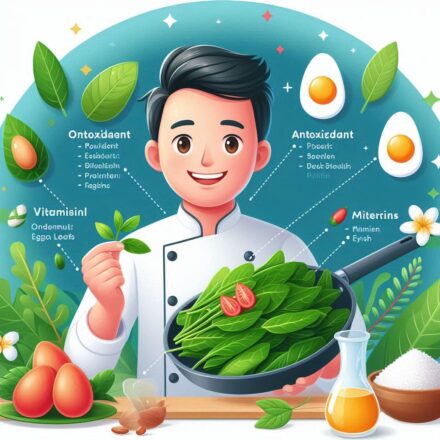Garden egg leaves benefits to our kidney health have been identified through studies many many years ago.
Chronic kidney disease (CKD) has emerged as one of the most prominent causes of death and suffering in the 21st century. This is so because of the rise of the two main risk factors, obesity, and diabetes mellitus.
Chronic kidney disease (CKD) is a serious condition where your kidneys become damaged and struggle to clean the blood as well as they should. When this happens, harmful toxins and excess fluid can build up in your body, leading to a range of health problems like high blood pressure, heart disease, stroke, and even early death. The good news is that there are actions you can take with the help of your healthcare provider to protect your kidneys. The CDC, a US agency that oversees disease management and control made it known about the role of what we eat in managing kidney diseases.
Getting a healthier kidney can start right away with some simple changes, including adding more vegetables and fruit to your diet. These foods are not only delicious and versatile, but they offer an abundance of nutrients that benefit your heart health.
Did you know that many fruits and vegetables are packed with essential vitamins, including vitamin C and beta-carotene? These two nutrients act as antioxidants, which help slow down or prevent atherosclerosis by reducing the buildup of plaque in the arteries. So not only are they delicious, but they can also play a key role in keeping your body healthy!
What are the main causes of chronic kidney disease
Diabetes and hypertension account for a whopping 66% of chronic kidney disease cases.
Diabetes: Diabetes occurs when your blood sugar remains too high. Over time, unmanaged blood sugar can cause damage to many organs in your body, including the kidneys and heart and blood vessels, nerves, and eyes.
High blood pressure: High blood pressure or Hypertension occurs when your blood pressure against the walls of your blood vessels increases. If uncontrolled or poorly controlled, high blood pressure can be a leading cause of heart attacks, strokes, and chronic kidney disease. Also, chronic kidney disease can cause high blood pressure.
Green leaves and Kidney disease
Green leafy vegetables like garden egg leaves are a powerhouse when it comes to preventing and managing kidney disease. Scientific evidence confirms that incorporating green leafy vegetables into your diet can significantly decrease the risk of kidney disease development. In a study by the National Kidney Foundation, individuals who consumed more than seven servings of green leafy vegetables per week saw a remarkable 32% reduction in kidney disease risk. Garden egg leaves benefits abounds. These vegetables can also play a critical role in managing major contributing factors to kidney disease, such as diabetes and high blood pressure. For instance, a study by the American Heart Association found that consuming green leafy vegetables was associated with a significantly lower risk of high blood pressure. Another research by the University of Maryland Medical Center confirms that consuming a diet high in green leafy vegetables can also slow down the progression of kidney disease. By adopting a diet rich in green leafy vegetables, you’re safeguarding your kidney health and overall well-being.
Let us now closely look at a super vegetable called Garden egg leaves.
Benefits of Garden Egg Leaves for Kidney Health

Its Potassium cleans the Kidney
Garden egg leaves with their fruit, Anara, detoxicate your kidney as it has potassium in their nutrient value. Potassium will filter blood and everything in the food that we eat to keep it clean and healthy. Since it will keep filtering your blood from unwanted material in your body, your blood pressure also stays healthy and makes your body keep rotating healthy blood throughout your body.
Garden egg leaves are anti-inflammatory
Did you know that many fruits and vegetables are packed with essential vitamins, including vitamin C and beta-carotene? These two nutrients act as antioxidants, which help slow down or prevent atherosclerosis by reducing the buildup of plaque in the arteries. So not only are they delicious, but they can also play a key role in keeping your body healthy! Green leafy vegetables like Garden egg leaves are full of antioxidants and vital nutrients.
Tips for Incorporating Garden Egg Vegetables into Your Diet
Garden Egg vegetables are actually scarce these days. However, it is still grown in rural areas and we can do more to incorporate it into our diet. Here are some delicious recipes to inspire you:
- Use as a pizza topping: Instead of using traditional pizza toppings such as mushrooms or pepperoni, try using garden egg vegetables. They add a unique flavor and are more nutritious compared to processed meats.
- Roast and serve as a side dish: Roasting garden egg vegetables with some olive oil and spices can bring out their natural flavors and provide many nutrients.
- Use in a vegetable curry: Adding garden egg vegetables to your vegetable curry can provide added texture and flavor.
Incorporating green leafy vegetables into your diet is easy and delicious. There are many ways to add green leafy vegetables to meals, such as adding them to salads, soups, smoothies, or stir-fries. You can also substitute them for less healthy options, such as using kale instead of lettuce in a sandwich or using spinach instead of rice in a dish. Additionally, there are many recipes available that incorporate green leafy vegetables, such as spinach and feta stuffed chicken or kale and quinoa salad. If you are concerned about the taste or texture of green leafy vegetables, you can try different cooking methods, such as roasting or sautéing, or adding spices and herbs for flavor.
In conclusion, green leafy vegetables are an excellent choice for preventing and managing kidney disease. They are rich in nutrients that promote kidney health, can prevent and manage kidney disease, and are easy to incorporate into your diet. By making green leafy vegetables a regular part of your diet, you can take an important step towards protecting your kidney health and overall well-being.


